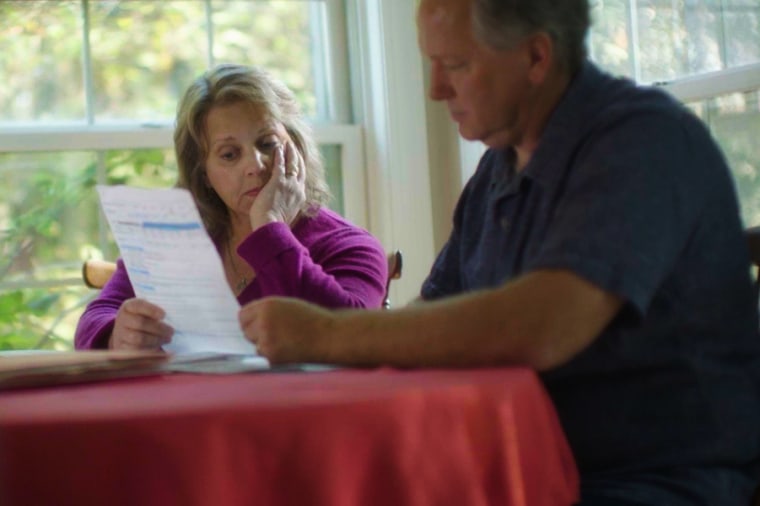A key provision in the Senate Democrats’ budget reconciliation bill that caps out-of-pocket spending on prescription drugs for Medicare recipients at $2,000 per year could be a lifeline for millions of older adults struggling to pay for heart medications.
Drug prices are a “deep and challenging” issue for people who take heart medications, said Dr. Khurram Nasir, chief of the division of cardiovascular prevention and wellness at the Houston Methodist Heart and Vascular Center.
Heart disease is the No. 1 killer of Americans, according to the Centers for Disease Control and Prevention. Nearly 700,000 people die from it each year. According to the American Heart Association, nearly half of all American adults have some form of heart disease.
Nasir co-authored a study published in the journal Circulation 2019 that found 1 in 8 Americans who suffer from heart disease can’t afford their heart medications. The study used National Health Interview Survey data from 2013 through 2017.
“Cost of medications is a real issue for millions of high-risk patients with cardiovascular disease,” Nasir said.
Dr. Mark Fendrick, a professor of health management and policy at the School of Public Health at the University of Michigan, agreed that financial strain is especially common for people who take heart medications.
That’s because, Fendrick said, people on those medications are often older and retired and usually have limited incomes. To make matters worse, they often have other chronic conditions that also require treatment and other costly prescription drugs.
That’s the case for Jackie Trapp of Muskego, Wisconsin, who is at high risk for blood clots due to her multiple myeloma diagnosis. Trapp is part of Patients for Affordable Drugs, a non-profit that advocates for lower drug costs.

Trapp, 57, takes Xarelto, a blood thinner medication that, with Medicare, has an out-of-pocket cost of around $90 for a 90-day supply. That would be manageable, she said, if not for the added cost of her cancer drugs which exceeds $10,000 a year. She qualifies for Medicare because she is unable to work because of her cancer diagnosis.
“I am likely to leave my husband all alone sooner than I would like, but now I fear of leaving him bankrupt as well,” said Trapp, who added that she has been dipping into her pension to pay for her medications.
Making difficult financial decisions is not uncommon, Fendrick said. “Oftentimes they have to choose between filling their prescriptions or paying their rent or eating healthy or buying gasoline.”
Dr. Icilma Fergus, a cardiologist at Mount Sinai Hospital who often treats patients on Medicare, said that patients usually struggle to pay for the newer heart medications, such as novel oral anticoagulants, used to prevent strokes, and PCSK9 inhibitors, used to lower cholesterol.
She said about 1 in 10 patients she sees tell her they can’t afford the heart medications they’re prescribed.
In some cases, patients are forced to delay or skip their medications, she said. In other cases, those who are unable to afford the medications switch to older, cheaper drugs, which often don’t perform as well as the newer medications and can come with more serious side effects.
“Patients are frustrated and they are disappointed,” Fergus said.
The frustration could grow worse, especially as inflation in the U.S. continues to soar.
A poll published Thursday from New West Health-Gallup found that 1 in 4 Americans say they are avoiding medical care or purchasing prescription drugs because of higher prices on everything from gas to groceries. The survey was conducted in June, the same month inflation reached 9.1%, a new 40-year high.
Senate Democrats are hoping to vote on the reconciliation deal before their August recess next week.
Tricia Neuman, a Medicare expert with the Kaiser Family Foundation, said that if the Senate reconciliation deal was signed into law, it would be “significant” for the more than 60 million Americans on Medicare.
“This is a real pocketbook issue for people, and people understand exactly what it means when they go to a pharmacy and they are confronted with that big drug bill,” she said.
The $2,000 out-of-pocket cap provision, in particular, would be the first major change to Medicare Part D since 2010, Neuman said, when lawmakers included a provision to the Affordable Care Act to close the “donut hole,” also known as the coverage gap.
“It is remarkable that the bill that appears to be on the cusp of a Senate vote could finally adopt a policy that lawmakers, presidential candidates and others have been talking about for decades,” she said.
If the deal doesn’t pass, Trapp said she fears that her prescription drugs expenses will continue as she continues to battle her ailments.
“I’m almost afraid to hope,” she said.
Follow NBC HEALTH on Twitter & Facebook.
Source: | This article originally belongs to Nbcnews.com









